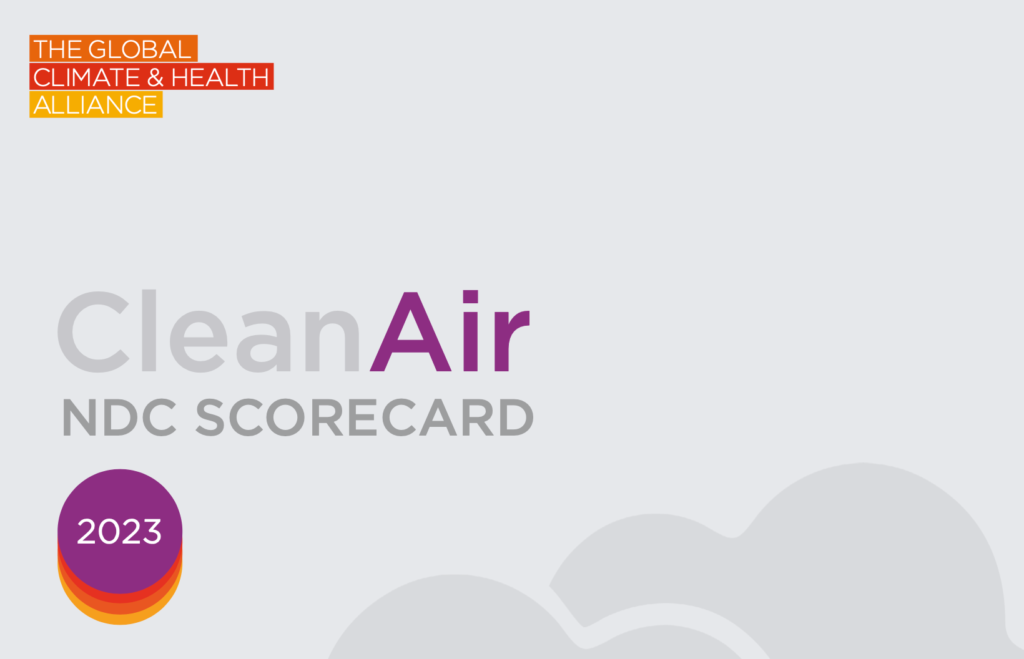September 5, 2024:- Professional health organisations from around the world today called on governments to protect people’s health by tackling the toxic air pollution impacting 99% of the world’s population, slash the use of fossil fuels that drive both air pollution and climate change, and get serious about climate and clean air commitments.
The call comes ahead of the United Nations marking Clean Air Day on September 7th – with this year’s theme of “it’s time to invest in #CleanAirNow”, and the forthcoming World Health Organization’s Second Global Conference on Air Pollution and Health, which will be held March 24-28, 2025 in Cartagena, Colombia.
“Six months out from the pivotal meeting on Air Pollution and Health, governments must halt new fossil fuel development, eliminate subsidies that prop up fossil fuel use, and immediately pass policies to stop methane leakage and flaring in existing fossil fuel production – a low cost and easy near term step”, said Dr Jeni Miller, Executive Director of the Global Climate and Health Alliance. “These policies must go hand in hand with comprehensive plans to fully phase out coal, oil and gas, transition to clean energy, and ensure clean energy access for all. Protections must be provided for communities and workers affected by these transitions, and cleaner household cooking and heating must be prioritised for the poorest households, currently exposed to dirty indoor air.”
“Internationally, over 700 thousand children under the age of five die each year due to air pollution. Children are particularly vulnerable to dirty air and to climate change, both in utero and as their young lungs, brains, and bodies are growing. For those that survive, preterm and childhood exposure to air pollution sets children up for a lifetime of poorer health. This is simply unacceptable, every child deserves to grow up breathing clean air. Governments know what they have to do to improve air quality, and the clean energy and transport solutions are already available to make this a reality”, said Miller.
“Currently, fossil fuels receive over US$ 1 trillion globally, in explicit public subsidies”, continued Miller. “On top of those direct subsidies, the global cost of the health harms associated with air pollution is a staggering US$ 8.1 trillion, or 6.1% of global GDP. Our governments are taxing us to subsidise the industry that poisons our own air, rather than investing those public funds in health systems, education, and the transition to a more sustainable future.”
“Governments that take action to tackle air pollution and reduce the fossil fuel emissions that cause global warming will see immediate, local, near term health benefits for their people”, added Miller. “At COP28, governments called for a transition away from fossil fuels – every further delay in action will leave greater challenges than ever to be addressed at next year’s WHO Air Pollution Conference.”
“Acting now could offer rapid gains in air quality improvements, even in addition to long term climate mitigation”, said Miller. “When the Canadian province of Ontario began phasing out coal power and implemented other clean air policies, it saw a 23% reduction in premature deaths and a 41% reduction in hospitalizations. Pittsburgh, Pennsylvania in the US saw an immediate drop of 42% fewer cardiovascular emergency visits, from reduced air pollution upon closure of a coal plant. Cities that have temporarily halted car travel, such as Paris, which reduced air pollution by 40% ahead of the Olympics thanks to initiatives that encourage active transport such as cycling – and Beijing during the 2008 Olympics – have seen cleaner air and bluer skies within a matter of weeks or even days – demonstrating that cleaner air is achievable. It is a matter of governments prioritising, step by step, the changes needed to deliver it”, she concluded.
“Countries such as Colombia, the United Kingdom and Kenya are showing real leadership by delivering cleaner air to their populations, with strong air pollution policies and by linking clean air benefits to their climate commitments in the Nationally Determined Contributions under the Paris Agreement”, said Rosie Tasker, Clean Air Liaison at the Global Climate and Health Alliance. “As they are demonstrating how these changes are possible, it is critical that other governments follow suit. Between now and the WHO Air Pollution conference, national governments will be in the process of updating their NDCs. These new NDCs must not only acknowledge the clean air benefits of reducing climate emissions, but should commit to integrating clean air goals into national climate policies, and to quantifying the health co-benefits from reduced air pollution, so that decision makers have at their fingertips real information about the health and economic costs of inaction versus action.”
“Commitments on air pollution within the NDCs are important – it’s nonsensical to separate climate action from clean air action, yet as of last year, little more than a third of all NDCs (62 out of 170) refer to actions to reduce air pollutants in specific sectors”, added Tasker. “Policies that simultaneously deliver for climate, air quality and health – whether embedded in NDCs or elsewhere – include investments in infrastructure to support walking and cycling, electrified public transport powered by renewable energy, fossil fuel subsidy reform and redirection of funds to health promoting investments. Governments need to move beyond vague murmurings of transitions, and commit to end dates for investments in fatal fossil fuels, with the richest highest emitting countries moving fastest. Just transition plans that protect the most vulnerable communities are essential to protect health and equity,” concluded Tasker.
Contact:
Dave Walsh, Communications Advisor, Global Climate and Health Alliance, [email protected]
About GCHA
The Global Climate and Health Alliance is a consortium of more than 160 health professional and health civil society organisations and networks from around the world addressing climate change. We are united by a shared vision of an equitable, sustainable future, in which the health impacts of climate change are minimised, and the health co-benefits of climate change mitigation are maximised.
Find out more: https://climateandhealthalliance.org/about/


